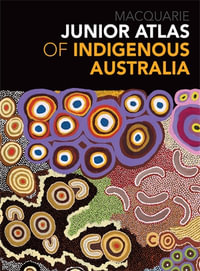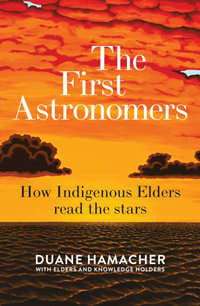
A Contextual Approach to Human Development
Integrating an Indian Perspective
By: Ashok K. Srivastava, Girishwar Misra
Hardcover | 6 September 2024
At a Glance
Hardcover
RRP $305.00
$240.95
21%OFF
Aims to ship in 7 to 10 business days
When will this arrive by?
Enter delivery postcode to estimate
This textbook offers a unique insight into the theoretical and applied aspects of human development in relation to the cultural traditions of non-Western countries.
Presented in a modular form, this comprehensive and thematic approach to lifespan development will help students develop an understanding of human development in varied Indian social contexts. Covering all stages of development including the development of self and personality, social understanding, human strengths, sustainable development, lifelong learning, and many more, the book highlights current research in these areas as well as provides learning objectives, points for reflection, web links, and a glossary.
This book is an essential reading for undergraduate students of psychology, human development, and allied fields, as well as for postgraduates with an interest in studying human development in a non-Western context.
Industry Reviews
'A Contextual Approach to Human Development is a vital resource for students and researchers in psychology, education, human development, and related fields. With a comprehensive focus on diverse aspects of human development, this book uniquely integrates theories, concepts, and research, from India and other Asian and African countries, offering culturally relevant perspectives with meaningful applications often overlooked in books originating from Euro-American tradition. Its interdisciplinary approach, life-span perspective, and emphasis on socio-cultural context make it an invaluable and refreshing guide for understanding human development.'
Professor Janak Pandey, Former Vice-Chancellor of Central University of South Bihar, Gaya, and Ex-President, International Association of Cross-Cultural Psychology (IACCP)
'Understanding of development must necessarily be rooted in the cultural context. Professors Srivastava and Misra present in this book a comprehensive and integrated view of human development which adds a clear cultural perspective to the accumulated global understanding of the processes of growth and development over the life span. Their meticulous attempt in this remarkable work sets it apart from other purportedly "universal" accounts of human development. It stands out due to its thorough and insightful treatment of facets of human development from an Indian perspective along with the extant views from the Global North. This book will be seen as a milestone work in the years to come and will provide a much-needed sourcebook for students and researchers of human development in India and abroad.'
Professor Ajit K. Mohanty, Former Professor of Psychology and ICSSR National Fellow, Jawaharlal Nehru University, New Delhi
'A Contextual Approach to Human Development is a refreshing and invaluable resource for teachers and students of human development. The multidisciplinary approach and a focus on the multifaceted aspects of context augur a holistic treatment of human development hitherto missing in books available on the subject. The book presents exemplary insights from ancient Indian texts and approaches and the latest research inputs from the majority world. The dialogic style of writing in several places makes the book very appealing. The book covers various topics with a focus on new theoretical and methodological approaches to development. The contextualist perspective runs as a thread throughout the book". The book orients students and teachers, informing them, appealing to them, exciting them and helping them to connect to their reality, allowing for a deep and meaningful understanding of the subject.'
Purnima Singh, Ph.D., Professor of Psychology, Indian Institute of Technology, Delhi
'Students, researchers, and teachers of developmental psychology have been experiencing the void of connections between aspects of human development (physical, cognitive, moral, etc.) and cultural ethos and structural context shaped by the social and economic policies of the nation. By highlighting the need to situate human development within the context of culture and sustainable development goals of nations and providing examples of such development from the Western and Indian contexts, this book comes up as a highly meaningful and refreshing resource for the learners of developmental psychology. To this end, besides the contributions of eminent thinkers such as Sigmund Freud and Jean Piaget, the seminal work of Indian contributors such as S. Anandalakshmy, T. S. Saraswathi, and Malavika Kapur marks the uniqueness of this volume. The questions for reflection at the end of chapters have the potential to foster critical research in human development toward meaningful integration with cultural and structural contexts as well as significant contemporary societal issues of poverty, healthcare, environment, and social justice.'
Kumar Ravi Priya, Ph.D., Professor of Psychology, Indian Institute of Technology, Kanpur
"The book provides a fresh and integrative perspective towards understanding human development. Describing the entire spectrum of human development from an Indian perspective, the book highlights a cultural and contextual approach. Focus on human strengths, sustainable development, lifelong learning, and inclusive development adds interesting and valuable insights. An interdisciplinary approach is reflected in the various chapters of the book, which is in tune with the National Education Policy 2020. Scientific as well as cultural rootedness makes the book stand out as an invaluable contribution to the field of human development".
Swati Patra, Ph.D., Professor of Psychology, Indira Gandhi National Open University, New Delhi
ISBN: 9781032578200
ISBN-10: 1032578203
Published: 6th September 2024
Format: Hardcover
Language: English
Number of Pages: 366
Audience: College, Tertiary and University
Publisher: Taylor & Francis Ltd
Country of Publication: GB
Dimensions (cm): 24.6 x 17.4 x 2.06
Weight (kg): 0.78
Shipping
| Standard Shipping | Express Shipping | |
|---|---|---|
| Metro postcodes: | $9.99 | $14.95 |
| Regional postcodes: | $9.99 | $14.95 |
| Rural postcodes: | $9.99 | $14.95 |
How to return your order
At Booktopia, we offer hassle-free returns in accordance with our returns policy. If you wish to return an item, please get in touch with Booktopia Customer Care.
Additional postage charges may be applicable.
Defective items
If there is a problem with any of the items received for your order then the Booktopia Customer Care team is ready to assist you.
For more info please visit our Help Centre.
You Can Find This Book In
This product is categorised by
- Non-FictionReference, Information & Interdisciplinary SubjectsInterdisciplinary StudiesRegional Studies
- Non-FictionPsychologyChild & Developmental Psychology
- Non-FictionEarth Sciences, Geography, Environment, PlanningGeographyRegional Geography
- Non-FictionPsychologySocial Psychology
- Non-FictionPsychologyPsychological Theory, Systems, Schools of Thought & Viewpoints
- Non-FictionSociety & Culture
- Non-FictionScienceBiology, Life SciencesLife Sciences in GeneralNeurosciences























